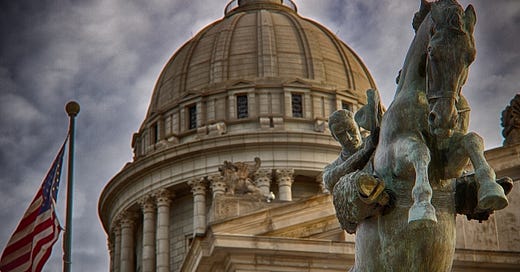Update: Backers of taxpayer-funded Catholic school appeal to Supreme Court
Oklahoma’s top court had cited state and federal constitutional violations

Supporters of what would be the country’s first publicly funded parochial school are taking their case to the U.S. Supreme Court.
Attorneys from the Alliance Defending Freedom, a conservative organization that is frequently involved in religious-freedom cases, yesterday filed a petition with th…



